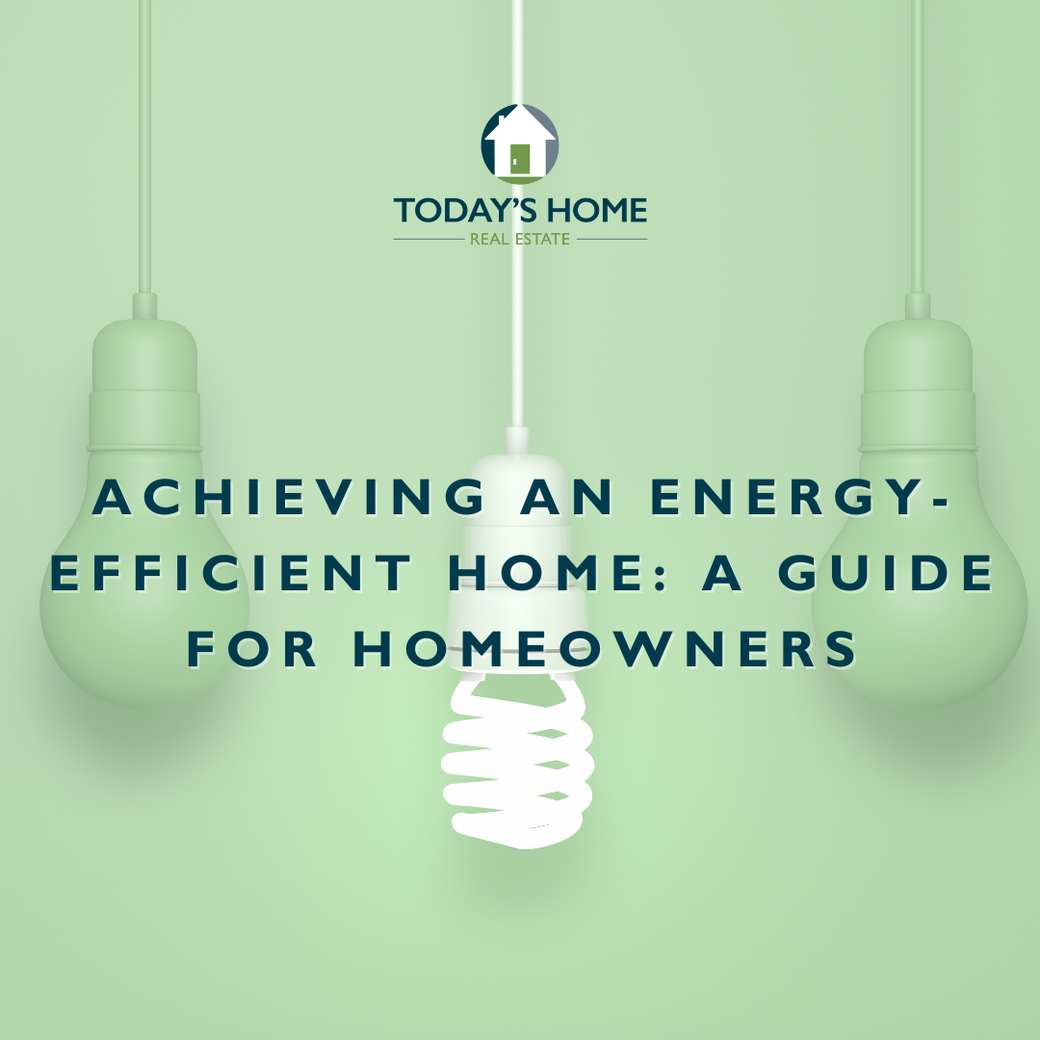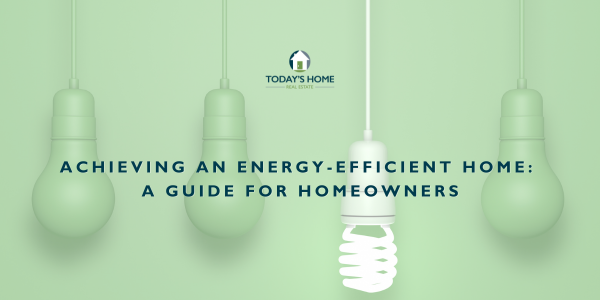An Energy-Efficient Home: Guide for Homeowners


Achieving an Energy-Efficient Home: A Guide for Homeowners
Welcome, December, with shorter days and cooler weather. I have a love-hate relationship at this time of year. Coming from the state of Illinois, I do appreciate colder weather. I enjoy sweaters, fires in the fireplace, hot chocolate, and snuggling under a soft, fluffy blanket. BUT... I wouldn't say I like the higher utility bills. In fact, Randy and I are working on making our home more efficient. With that in mind, I thought I would share some of our ideas and strategies, as well as some more.
In today's world, energy efficiency is more than just a trend—it's necessary. With rising energy costs and the demand for sustainable living, creating an energy-efficient home has become a priority for many homeowners. Whether you're planning a renovation, building a new home, or looking for simple changes to your current space, this simple guide will help you achieve an energy-efficient home while boosting comfort and savings.
Why Energy Efficiency Matters
- Lower Utility Bills: Energy-efficient homes consume less power, significantly saving electricity and heating bills.
- Increased Comfort: Proper insulation, energy-efficient windows, and HVAC systems maintain consistent temperatures, eliminating drafts and hot or cold spots.
- Enhanced Property Value: Energy-efficient upgrades are highly desirable and can increase your home's resale value.
Steps to Achieve an Energy-Efficient Home
Conduct an Energy Audit: Identify where your home is losing energy. Professional energy audits use tools like infrared cameras and blower doors to detect leaks and inefficiencies. Alternatively, DIY audits can focus on windows, doors, and insulation.
Improve Insulation: A well-insulated home prevents heat transfer, keeping it warm in winter and cool in summer. I have had many clients (including myself) see drastic results simply by upgrading our attic insulation through the years. Key areas to insulate include:
- Attics
- Walls
- Basements or crawl spaces: Use materials like spray foam, fiberglass, or cellulose for adequate insulation.
Upgrade Windows and Doors: Older windows and doors are often the culprits of energy loss. Replace single-pane windows with double- or triple-pane alternatives with low-E coatings—seal gaps around windows and doors with weatherstripping or caulk. Randy and I upgraded our aluminum single-pane windows and received a bump in efficiency.
Invest in Energy-Efficient Appliances: Modern appliances have energy ratings like Energy Star, indicating they use less power while delivering top-notch performance. Upgrade your refrigerator, washing machine, and water heater for long-term savings.
Switch to LED Lighting: LED bulbs consume up to 90% less energy than traditional incandescent bulbs and last significantly longer. Replace all outdated bulbs in your home with LEDs to see an immediate impact.
Optimize HVAC Systems: Heating and cooling account for significant energy use. Maintain your HVAC system by:
- Replacing air filters regularly.
- Scheduling professional tune-ups annually.
- Installing a programmable or smart thermostat to optimize heating and cooling schedules.
Go Solar: Solar panels are a game-changer for energy efficiency. While the upfront cost is substantial, tax incentives and energy savings make them a worthwhile investment. Even a more minor solar system can offset a significant portion of your energy use. NOTE: Register your Solar energy with your local Power Company if you go this route.
Use Smart Home Technology: Smart plugs, thermostats, and lighting systems allow you to monitor and control energy usage remotely, helping to reduce waste and optimize efficiency.
Note: Randy and I installed Pro Power Save in our home four months ago. When we installed it, our power bill was $490 per month. Over the past four months, we have seen a steady decline, with our last bill coming in at $206. We've been in our home for eleven years and never had a low power bill. I cannot guarantee that you will have the same results; I can only share my experience.
Bonus Tips for Energy Efficiency
- Landscaping: Plant trees strategically to provide shade in summer and block cold winds in winter.
- Water Efficiency: Install low-flow fixtures and consider a rainwater collection system for irrigation.
- Behavioral Changes: Small habits like turning off lights when not in use, unplugging devices, and washing clothes in cold water can add up to significant energy savings.
The Role of Energy Efficiency in Real Estate
An energy-efficient home is not just an asset to the environment but also to the real estate market. Homes with green certifications or high energy ratings tend to sell faster and at higher prices. For buyers, energy efficiency can be a deciding factor, reducing future living costs and improving long-term comfort.
Conclusion
Achieving an energy-efficient home combines smart investments, practical upgrades, and mindful living. Whether you're starting small with LED bulbs or planning significant renovations like solar panels, every step brings you closer to a greener, more cost-effective home.
Are you looking for a home that's already energy-efficient or need advice on making your property greener? Let's talk! As your local real estate expert, I can help you find a home that meets your energy goals or upgrade your current space to maximize efficiency and value.
Categories
- All Blogs 31
- 2022 1
- 2024 9
- 2025 13
- Alabaster, Alabama 2
- Birmingham AL happenings in Jan 2022 1
- Birmingham-Hoover Metro 1
- Birmingham, Alabama 3
- Buy Real Estate 7
- Calera, Alabama 1
- Christmas 1
- CMA 1
- Community 7
- Deb Long 5
- Fair Housing 1
- Faith-based 3
- Fall 4
- Family 1
- February Events 1
- Find Your Home Value 1
- FREE Lunch with Deb 1
- home buyers 7
- Home Inprovement 1
- Home Maintenance 1
- home pricing 1
- Home sellers 6
- Hoover, Alabama 3
- housing trends 1
- innovation 1
- Investment Strategies 1
- Life Lessons 2
- Lifestyle 3
- Making the Selling & Moving Process Easier 1
- Memorial Day 2
- Memories 2
- MLS 1
- Mortgage Calculator 1
- Moving 2
- Newsletter 1
- Real Estate 4
- real estate tips 2
- Remember 1
- Sell Real Estate 5
- Selling Strategies 1
- Shelby County 2
- Spring Selling Season 1
- The Inside Scoop 2
- The Power of 1 1
- Today's Home Real Estate 3
Recent Posts










